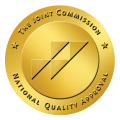Millions of Americans suffer from depression.
Depression can seriously affect an individual both emotionally and physically. Those individuals that suffer from depression know all too well the crippling feeling of an inability to do anything. Simply activities of daily living can feel like a burden. The act of getting out of bed can seem an insurmountable obstacle. Depression can feel like your body is made of lead. Simple actions that once were part of your routine fall away and the act of showering, going food shopping, or even eating become laborious feats. Feelings of emptiness fill your day. For those who are in recovery from addiction to drugs or alcohol, feelings of emptiness, fatigue, insomnia, negative thoughts, anxiety, and sadness are all too familiar. It is not uncommon for an individual in recovery from a substance use disorder to experience depression. Sometimes these feelings of depression in recovery from addiction can cause the drug or alcohol addicted individuals Depression and substance abuse often go hand in hand with one another. Individuals may have started drinking or using drugs due to a need to alleviate their sadness and drug and alcohol abuse can lead to sadness and depression. It is a vicious cycle that drug or alcohol addicted individuals can become stuck in with no end in sight. For those in recovery from their addiction, it can be difficult to cope with depression and its symptoms.
Why is Depression so Common in Recovery from Addiction to Drug or Alcohol?
For those who are in recovery from addiction to drugs or alcohol, their bodies have become overwhelmed by the euphoric, feel-good effects of the drugs or alcohol. Over time the addicted individual’s body loses the ability to produce certain feel-good chemicals such as dopamine. This is due to the over stimulation that the drugs and alcohol have on the addicted individual. They cause a failure to produce what the human body needs to feel physically good, to feel joy, to be happy. The human body is an amazing thing and will bounce back in time and functions will return to normal. But it does not occur overnight. Some addicted individuals can experience anhedonia, the inability to feel pleasure, in their early recovery. This will pass in time but in the moment, the addicted individual struggles to feel pleasure in things they once enjoyed. Anhedonia is common in those drug addicted individuals who have abused stimulants such as cocaine and methamphetamine. The feeling of depression in recovery from addiction to drugs or alcohol can be hard to cope with when already learning to cope without the need for a substance to get through the day. Depression in early recovery is common and has potential to increase the addicted individual’s risk for relapse.
What are Some Reasons for Depression During Recovery from Addiction?
Depression in recovery may also be a sign of PAWS (Post-Acute Withdrawal Syndrome). PAWS is a condition which can show up in those who have achieved sobriety from drugs or alcohol for up to a year. PAWS symptoms are depression, anxiety, insomnia, and lack of energy. Some individuals even report body aches when they are experiencing PAWS. The symptoms resulting from PAWS usually last a day or two and disappear as quickly as they showed up. The signs of depression in recovery may also be due to living in an altered frame of mind from the drugs or alcohol. After years of substance abuse, the body will need time to reacclimate and adjust. Another reason for depression for those in recovery from addiction could be a co-occurring disorder. The reason for depression may just be depression. If an individual is suffering from depression as well as a substance use disorder, the depression may go undiagnosed during the treatment for their substance use disorder. This is common as depression can be a symptom of drug and alcohol addiction. It can be hard to diagnose depression in the first few months until most of the residual symptoms of drug or alcohol addiction fade away.
What are the Signs of Depression?
Determining if a person is experiencing depression is not as simple as the individual experiencing sadness. Depression can present in different ways that may not be so obvious. The following are some of the signs of depression:
- Difficulty concentrating or focusing
- Tiredness
- Insomnia
- Anger
- Irritability and frustration
- Lack of energy
- Sleeping too much
- Loss of interest in pleasurable activities
- Anxiety
- Isolation
- Constant worry
- Restlessness
- Guilt and shame
- Difficulty in decision making
- Thoughts of suicide
What can seem like frustration or stress can in fact be signs of depression. There are ways for individuals in recovery from addiction to manage depression.
Tips to Manage Depression for Individuals in Recovery from Addiction
Establish a Daily Routine – Don’t be held back by depression. Set goals and establish a daily routine. When you begin a new routine and stick to it, you will find a sense of purpose and increase in self-esteem when you accomplish the daily goals you set for yourself in your routines.
Be Active – Whether it is hitting the gym or playing sports outdoors, being active will increase your endorphins and improve your mood.
Change of Diet – By eating better, you will feel better. Foods rich with omega-3 fatty acids, vitamins and minerals, protein, and folic acid have been shown to improve mood. Where diets that are high in sugar can bring on anxiety and depression.
Get Outdoors – A natural way to improve your mood is to get some sunlight. Natural sunlight has shown to improve mood and help with a regular sleep cycle.
Connection – is instrumental in combatting depression as well as struggles in recovery from addiction to drugs or alcohol. It is also crucial as a way to reach out to your supports.
Meditation – Meditation helps to lessen anxiety and improve mindfulness. By staying present and not stressing over the future or dwelling on past events, an individual in recovery from addiction to drugs and alcohol can improve their mood and lessen stress and anxiety.
Find a New Hobby – Try finding a new hobby or activity. Often by learning a new skill or activity an individual can find a sense of pride and joy.
Ask for Help
Symptoms of depression can come on slowly or quickly. They can be precipitated by life events. For those in recovery from addiction to drugs or alcohol it is important to address depression and its symptoms. Depression can put an individual in addiction recovery at high risk for relapse. Individuals in recovery should utilize these tips to manage depression. For many, the symptoms will subside. However, for others counseling or medication may be needed to treat depression. Co-occurring disorders such as depression are common in those who have struggled with substance abuse. Individuals in recovery should remember that there is no shame in asking for help with depression. Just as we needed help to recover from addiction to drugs and alcohol, sometimes we need the help of others to raise us up when we are at our lowest.









